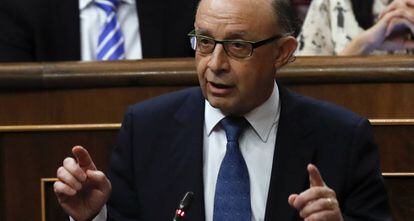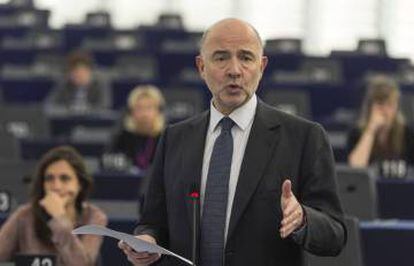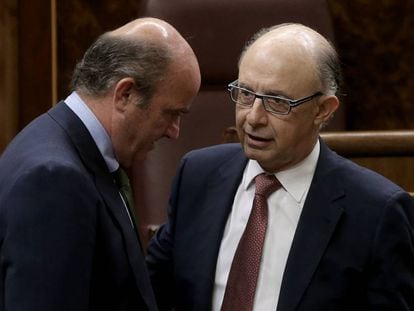Spain to hike taxes on tobacco, alcohol and soft drinks to raise €8 billion
Corporate tax regime and crackdown on fraud also on agenda as Madrid aims to hit EU deficit targets

Spain’s minority government, headed by the Popular Party (PP) conservatives, is sitting down with the main opposition Socialists to hammer out the details of the budget plan that Brussels is expecting to see in the coming weeks. Spain needs to list ways it will bring down the public deficit from 4.6% to 3.1% of GDP in 2017.

This entails an adjustment of around €15 billion, but the government is hoping to minimize the need for further austerity measures in a country that only recently emerged from a protracted economic crisis.
Instead, the PP is banking on sustained economic growth to drive down the excessive deficit figure. The International Monetary Fund (IMF) is forecasting that the Spanish economy will grow 3.1% this year and 2.2% in 2017.
Cash payments will be limited to €1,000, down from €2,500
But the state is also planning to collect an additional €8 billion next year, mostly from a hike in corporate tax (€5 billion). A further €2 billion will pour into state coffers through higher duty on tobacco and alcohol, and a new levy on sugary drinks. These types of taxes target what experts call “negative externalities,” or the costs suffered by a third party via consumption of taxed items, in this case because of detrimental effects on health.
Authorities hope to claim back another billion euros by cracking down on tax fraud, particularly on value-added tax (known as IVA in Spain). The Tax Agency is planning to introduce a mechanism that will force large companies to automatically file information regarding all transactions subject to VAT.
Cash payments will also be limited to €1,000, down from the ceiling of €2,500 set in 2012, and tax authorities will tighten eligibility rules for payment deferments. The state is currently owed over €10 billion in deferred taxes.

On Wednesday, Finance Minister Cristóbal Montoro also announced a plan to overhaul the administrative machinery over the 2017-2019 period, a move that is expected to save €900 million next year.
The package of measures will get green-lighted by the Cabinet on Friday, together with the spending ceiling. This will allow authorities to start working out the regional budgets and deficit levels for next year.
English version by Susana Urra.












































